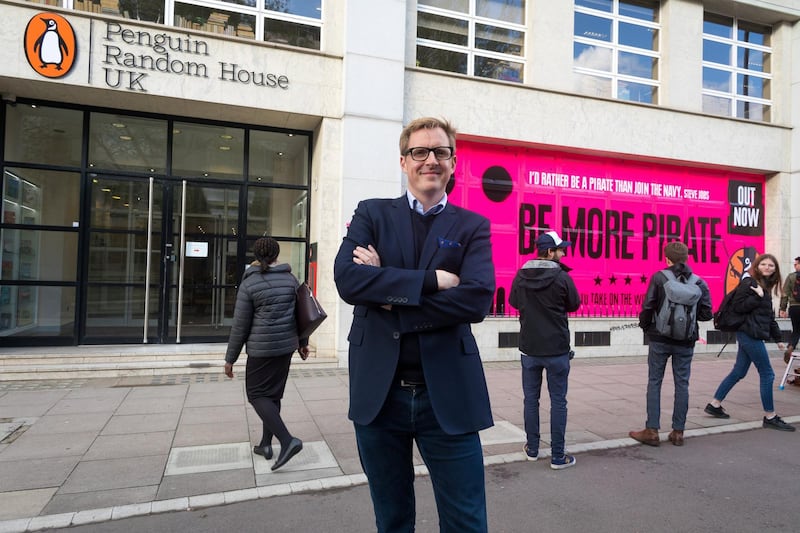If your view of pirates is heavily influenced by Captain Jack Sparrow's flamboyance, excessive drinking, plank-walking, parrots and peg-legs, then Sam Conniff Allende would like a few minutes of your time.
The 42-year-old social entrepreneur from London published a self help-style business manual this year called Be More Pirate: Or How To Take On The World And Win, in which he proposes that modern-day agents of change should look to the Golden Age of Piracy for how to run their lives. "Golden Age pirates were the millennials of the 18th century, facing a broken system, locked out of their own future by a self-interested establishment clinging on to a past that no longer had any place," he explains.
During this short period between 1690-1725, crews of young pirates – average age 28 – formed, which shared their plunder fairly, instituted measures of social equality for women and ethnic minorities, and even practised the first forms of marketing – such as the Jolly Roger flag that was hoisted on pirate ships.
Through word of mouth and some spectacular guerrilla marketing – which included illegally fly-posting the outside of his publisher Penguin’s building, a move that earned the approbation of Virgin founder Sir Richard Branson – the book has became a slow-burning success story, which has now turned into a bit of a wild fire.
It has sold 20,000 copies in the United Kingdom (a country where sales of 2,000 are the average), and is set to be published in seven more markets globally: America this month, and Russia, Australia, Canada, Germany and Holland next year.
So what inspired Allende to write the book, which after describing the out-of-their-time approaches of the Golden Age pirates, goes on to explain how we can use such disruptive thinking in our own lives? "The enormity of the global situation we're in," he explains. "The vacuum of imagination and nerve among our leaders and the huge potential of a generation unlike any other. I've mentored smart young entrepreneurs, innovators and changemakers for over a decade and I'm damned if I'm going to keep on trotting out the same lines when the same old lines have got us in such a mess."
_________________________
Read more:
[ New cookbook explores Emirati food culture and traditions ]
[ Laila Al-Atrash: 'Writers are very poor in the Arab world because nobody gives you anything' ]
[ How cartoonist Ken Krimstein drew inspiration from German philosopher Hannah Arendt ]
__________________________
As co-founder of Livity, a youth marketing agency, Sam helped thousands of young people by giving them internships and getting them to work with creative campaigns, and he says he chose them “by chance”.
“I used pirates as a metaphor to young entrepreneurs as I see them as the resistance against the current predominant business model and exploitation.
"I also have a massive chip on my shoulder about being dyslexic and non-academic – never went to university – and so I doubled up on research due to my imposter syndrome, and one day, while reading at the British Library and Greenwich Maritime Museum, the true story of the Golden Age of Piracy began to emerge. One that's been systematically erased from history by the very establishment that they threatened, leaving us with only the cartoon pastiche version we're all so familiar with."
Allende was helped by several "well-established pirate historians" who pointed out the evidence that the pirates did have a clear strand of social justice, democracy and liberty to their organisations.
How did he make the fairly esoteric connection between pirates and the modern age? "Well, it began as a metaphor, but it became a manifesto," he explains. "The biggest mistake we can make is to accept the way things are as the only way they can be, or to not realise that the level of change that's required isn't going to come by playing within the rules.
“And this is the precise point of using the Golden Age of Piracy; they didn’t just break rules, they remade them,” he says. “In the face of abuse and tyranny, they developed systems of fair pay, equality, democracy and justice that were ahead of any other organisation in the world, or seen until that time. Their ideas took hold and became the sort of large, rallying, consensual ideas that could mobilise people.
“And if there was ever a time for some new thinking, new and big ideas and a willingness to break some bad old rules to create some new and better ones, now’s surely the time.”






